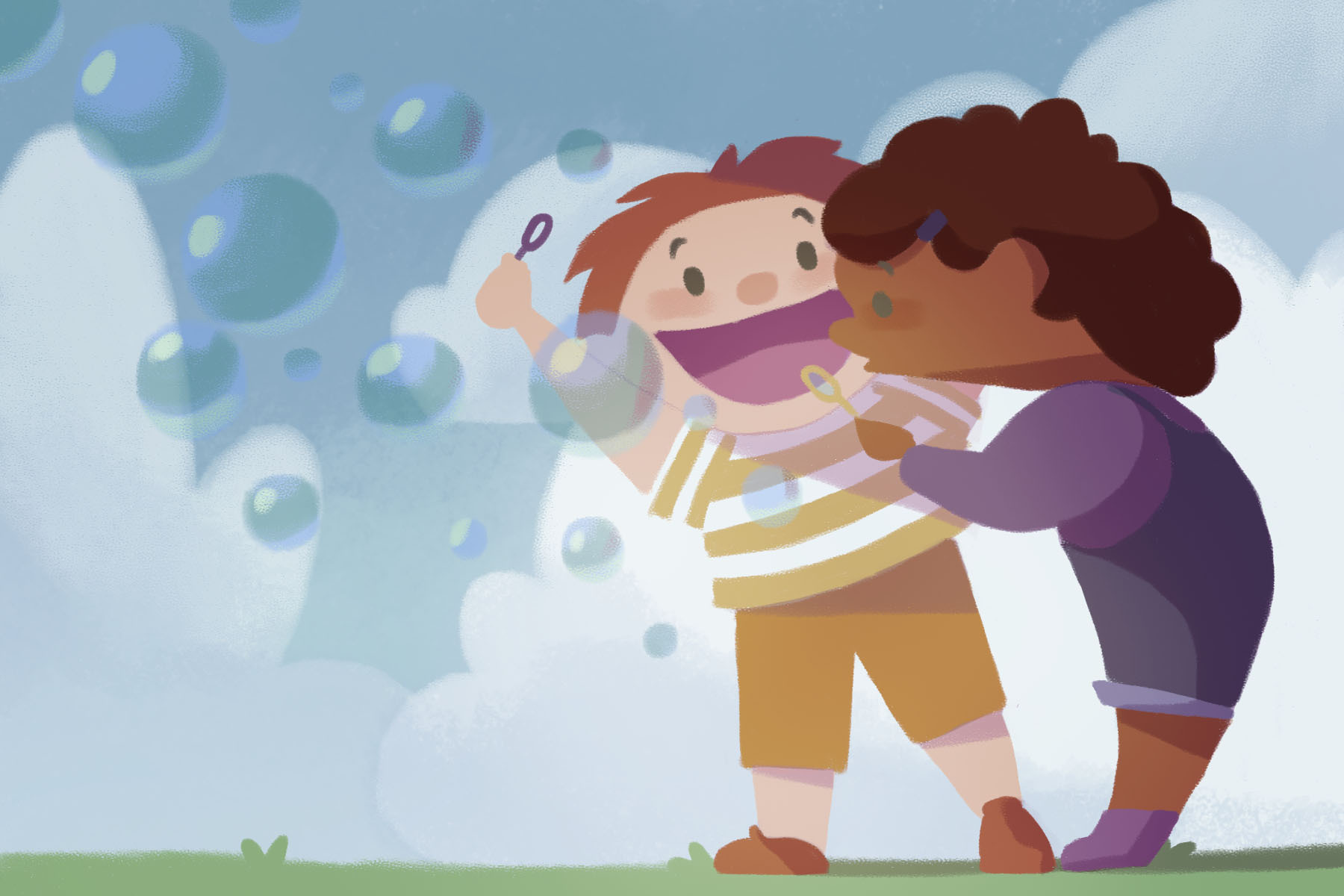Recently, I watched a road trip vlog about where a YouTuber went on a road trip with a random girl he had met on a dating app. It was adorable and heartfelt, but they didn’t “get together” in the end, which resulted in a lot of disappointment expressed in the comments. It got me thinking: Are healthy friendships valued less than romantic relationships?
The unfortunate answer is: yes. We live in an era that’s obsessed with romantic love — specifically a white-washed, heteronormative romantic love. As kids, we watch Disney princesses end up with Prince Charmings, living their “happily ever after.” When we’re teenagers, our media shifts to rom-coms, songs about love — or rather often, lack of love — and events like prom that are built on the assumption that people are supposed to pair up. People have been socially engineered to put romantic relationships on an idealistic pedestal. Singlehood is seen as a self-inflicted state of immaturity, while marriage is seen as a hallmark of becoming a successful, normal adult.
Romantic relationships are so idolized and sentimentalized in our culture that it’s reached a point where there are people who believe truly platonic relationships can’t exist between men and women. It’s as if encountering someone of the opposite gender immediately brings up the possibility of romance. When we are constantly bombarded by the idea that it is better to be with someone than be alone, the effects are ultimately toxic and self-destructive. But, romantic love didn’t always matter so much in our lives.
The History of Love
When tracing the history of love back in time, it all starts with the Greek philosopher Plato and his theory of forms. Forms are universal ideals, like justice, equality, beauty and love, which are unattainable but exist only to be referenced by the physical world. For example, a painting can be beautiful by referencing the ideal form of “beauty,” but it can never be beauty itself. In “Symposium” by Plato, the character of Socrates describes the range of love that can exist, from the most shallow love like lust, which is love of the body, to the highest form of love, platonic love, which loves the soul of a person.
Today, the term platonic love is usually used to indicate a relationship that doesn’t involve sex and often indicates unrequited love. Its negative connotation shows the high valuation of romance in society, but not friendships. Platonic love is seen as both opposite of and inferior to romantic love. Yet according to Plato, the highest form of love is platonic love, which means it exists in romantic relationships, but it’s never celebrated because platonic love is not as exciting as passionate, romantic love. Rather than admitting the objective and sometimes unsexy reasons why you love someone, it’s more fun to call the raging hormonal emotional highs you experience when you love someone “romance.”
Historically, the concept of romantic love emerged during the fittingly named Age of Romanticism in 19th century Europe, as both a rejection of the rationality of the Enlightenment, but also as a celebration of the Enlightenment’s emphasis on the right to pursue happiness. If you’ve ever read anything from the Romantic period, you know it’s all extremely exaggerated and everyone’s emotions are running high all the time. From the Romantic era, the seeds of society’s obsession with passionate, tumultuous love were sowed.
Personally, it sounds terribly exhausting to me, but it set the scene for centuries to follow, as we realized this dramatic, emotional rollercoaster called romance was alluring and therefore salable.
Modern Day Cultural Engineering
This obsession with romantic relationships isn’t just fed to us through culture and media though; it’s ingrained in our government policies as well. Before the Enlightenment and the Romantic era, marriage was a political institution that helped families gain connections, increase stability and ensure legacy. Marrying for the sake of feelings wasn’t common until the Romantics popped up.
Economically speaking, marriage helps populate the next generation to fill the job market and consumer base. With this in mind, American laws and policies favored those who coupled up, passing over 1000 laws that specifically benefit married people, including tax breaks, joint healthcare coverage and spousal Social Security benefits. With America’s idealized “nuclear family” set-up representing the hallmark of success in the 20th century, both the media landscape and political institutions socially engineered the American population to idealize romantic relationships.
There are downsides of this societal pressure for both those in romantic relationships and those who are single. There’s a reason why Disney movies end at “happily ever after” and don’t depict the sometimes grueling, boring and blatantly unromantic work that a healthy dating relationship requires. Putting all your emotional needs on one person comes from idealistic ideas of “soulmates” or “the One,” and ignores the fact that marriage, at its core, is a political institution and practical lifestyle. Marriage was not originally designed to provide everything from friendship, romantic love, personal fulfillment, to a lifelong load of highly emotional freight. That’s the job of a healthy network of platonic friends, yet many people who jump into relationships often neglect their friendships until it’s too late.
Singlehood and Friendships
For those who are single, they are often expected to end their singlehood, as if the status of being single is somehow worse than being taken. Yet single people are starting to realize the benefits of living alone, not having to compromise and, most importantly, having more time for friends. When you don’t spend all your time with one person, there’s a lot of freedom to spread your network of friends wide.
Multitudes of scientific studies show that happiness in adulthood is indicated by good social relationships, rather than whether they are married or not. Contrary to popular belief, uncommitted people aren’t wallowing in their loneliness all the time; rather, they spend much more time cultivating their platonic friendships more than those in relationships.
As Aminatou Sow, co-author of “Big Friendship: How We Keep Each Other Close,” says, being in love with all your friends is just as, if not more important, than finding the One person you can love forever. If we were to really understand platonic love, we’d come to realize that it should be the foundation for every relationship you have — whether it’s love between partners, friends or family. Each relationship is all equally valid and important to work on.
Society doesn’t equip us with the tools to be able to admit that we are, or at least we should, be “in love” with all our friends, because ideal platonic relationships are based on mutual understanding and respect for who a person is. Treating your friends and family with the same appreciation, patience and care as you do a partner is key to living a long, healthy life where you have many emotional outlets. In an era where almost 50% of marriages end in divorce, maybe it’s time for America to rethink its ideas of love and how damaging they might really be.
Romance isn’t necessarily dead, but reshaping the way we think about love and realizing how valuable our platonic friendships are can make us more happy and healthy, whether you’re single or taken. It’s possible that one day, we’ll celebrate the guy and the girl who end up being real good friends in the same way we would celebrate them if they got together.

















